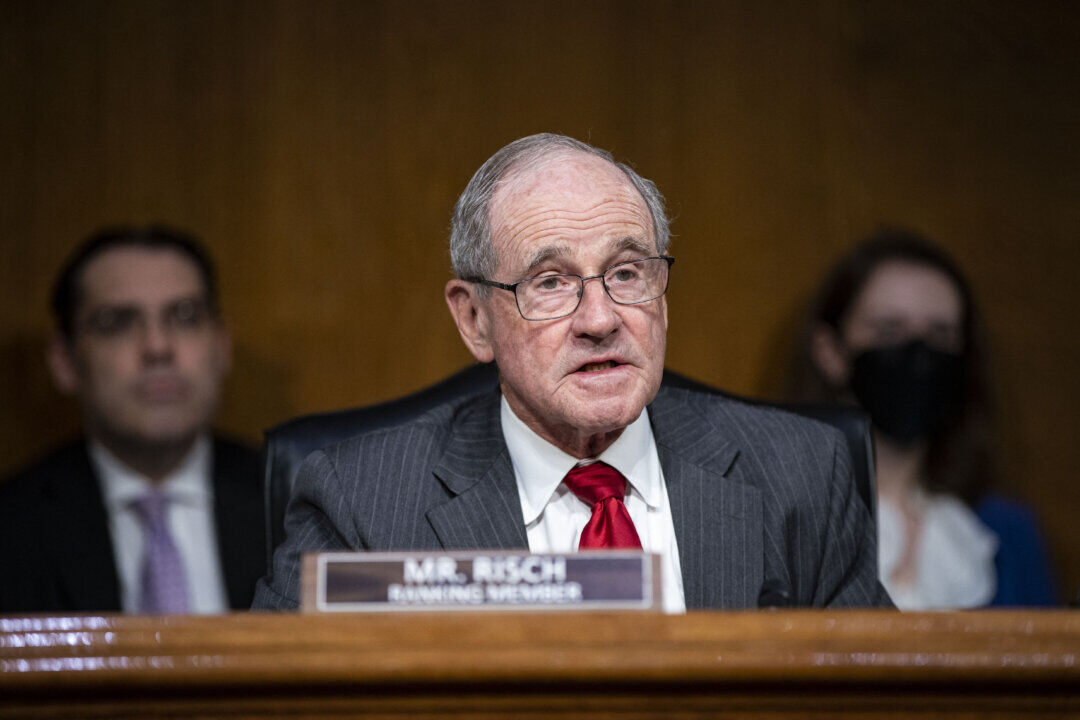The senators say that the era in which U.S.–China science and technology cooperation made sense is long-gone.
A group of Republican senators is urging the Biden administration to revoke a freshly renewed science and technology agreement with communist China, citing concerns about the regime’s support for state-led industrial development and military objectives that harm U.S. interests.
On Dec. 13, the United States renewed the Science and Technology Agreement (STA) with China for another five years.
The State Department said that guardrails had been built into the renewal to protect intellectual property and research, and that it addressed a key criticism that the STA was outdated and ineffective in preventing Chinese state-backed theft of U.S. intellectual property.
But a group of Republican lawmakers, led by Sen. Jim Risch (R-Idaho), the ranking member of the Senate Foreign Relations Committee, say that the STA renewal was a mistake.
They argue that the era in which U.S.–China science and technology cooperation made sense is “long gone.”
“The PRC wants to dominate the technologies of the future and will use whatever legal and illegal means it takes to get there,” reads their Dec. 19 letter to Secretary of State Antony Blinken.
“The risks are clear. We already know the PRC has leveraged research cooperation enabled by the STA to support state-led industrial development and advance military objectives that harm U.S. interests.”
The STA was signed in 1979, just weeks after the United States established diplomatic relations with the Chinese Communist Party (CCP)-ruled People’s Republic of China (PRC) to counter the Soviet Union’s influence.
At the time, the China lagged significantly behind the United States and other Western nations in science and technology. The STA was intended to provide cooperation opportunities between the two sides for mutual benefit, allowing U.S. scientists to gain access to large data and research pools, while China would receive a boost in its science and technology sectors.
The agreement was extended in 2018 and given temporary extensions last year and this year.
The senators say in their letter that the CCP’s control of its economic and research ecosystems allows it to leverage science and technology ties with the United States and other countries to acquire technology, fill knowledge gaps, and develop critical talent that advances its strategic and economic objectives.
“Renewal of the STA provides top cover to universities, businesses, and professional bodies to continue science and technology research cooperation with the PRC. The U.S. government should send the opposite signal,” they wrote.
“The PRC has also limited access to U.S.-funded research data, in violation of previous agreements. We should also consider the safety of U.S. researchers, given the PRC’s record of using U.S. citizens as bargaining chips to secure the release of PRC nationals in U.S. custody.
The CCP’s routine restriction of data sharing came under the spotlight during the COVID-19 pandemic when it cut off access to data, including U.S.-funded coronavirus research. There have also been concerns raised about fabricated or faulty data sets shared by Chinese institutions, as well as serious ethical concerns regarding whether data was collected with subjects’ consent and used to suppress persecuted minorities.
The Department of State has provided several briefings to the Senate Foreign Relations Committee on the STA, and members of Congress of both chambers have introduced legislation to increase congressional oversight of the STA and require guardrails for dual-use research and human rights protections.
The letter, co-signed by Sens. John Barrasso (R-Wyo.), Pete Ricketts (R-Neb.), Todd Young (R-Ind.), and Bill Hagerty (R-Tenn.), ends with a call for a response on “this urgent matter.”
“STA renewal during the last days of this administration denies the incoming administration a chance to weigh in on this highly controversial agreement. The Biden Administration should reverse course,” it reads.
The State Department did not immediately respond to a request for comment on the letter.
Catherine Yang and The Associated Press contributed to this report.

